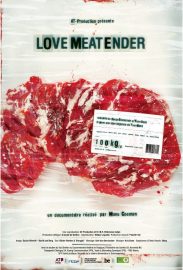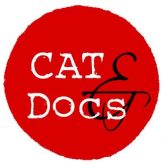
https://www.filmplatform.net/product/lovemeatender
Humans eat far too much meat than animals can provide. Animals lowered to the rank of machines, pollution, exhaustion of natural resources, global warming : the earth is already paying the higher price. Consequences for the human body are also manifold, from obesity to cancers, and also resistance to antibiotics. Lovemeatender raises life to the very heart of our plates in order to renew our image of meat. This film is addressed to all audiences, with a special soundtrack by Kris Dane.

THE WORLD OF MEAT AS IT HAS NEVER BEEN SEEN BEFORE
LoveMEATender questions the place of meat in our lives and the crazy surge that has made it a product “like any other”, subject to the rule of the lowest possible price. In 2050, there will be approximately 9 billion individuals on Earth and to supply us with meat will require 36 billion head of livestock. Is it reasonable to continue to think that every person can eat meat every day?
The exhaustion of natural resources, pollution, global warming; the earth is already paying the price for overproduction… The consequences for the human body are also manifold, from obesity to cancers, diabetes, heart disease and resistance to antibiotics. As for the animals, the main subjects, lowered to the rank of machines, they are no longer part of our world, even less so of our imagination.
This film is addressed to all audiences and raises life to the very heart of our plates thanks to a combination of filmed images, the destiny of a wonderful character, the Breton André Pochon, the use of animation, and music specially composed for the film by the singer Kris Dane. How did meat become commonplace in our plates?
OBJECTIVES OF THE FILM
– To place the consumption of meat in a historical and health perspective.
– To explain the differences between animal farming and “production”, between farm and industry.
– To address the broadest possible audience in such a way as to encourage them to become aware of the various impacts of animal production.
– To draw attention to the links between this industry and the modes of consumption that it has created and developed. (fast-food, bad quality, diseases…)
– To encourage our societies to fundamentally rethink the global meat industry and move towards a more respectful and integrated mode of farming.
– To initiate individual responsibility liable to guide consumption choices.